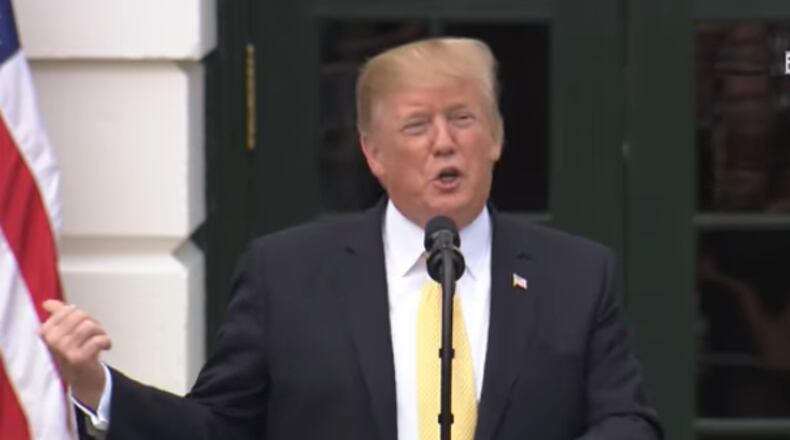"Soy growers need a positive resolution of this ongoing tariff dispute, not further escalation of tensions," said the American Soybean Association.
"We see no end in sight," said Lynn Rohrscheib, the President of the Illinois Soybean Growers, who fears even more economic hardship.
"When China’s reciprocal tariffs hit our soybeans last summer, we lost nearly one-third of our market overnight," Rohrschieb added.
"In 2018, Virginia exported more than $58 million soybean products to China – an 83 percent decrease from 2017," Virginia's two Democratic U.S. Senators said on Tuesday.
“The sentiment out in farm country is getting grimmer by the day,” John Heisdorffer, soybean farmer in Keota, Iowa, “Our patience is waning, our finances are suffering&the stress from months of living with the consequences of these tariffs is mounting.” https://t.co/BWmL5VXVYp
— Lise Latulippe (@lise_latulippe) May 14, 2019
Soy growers need a positive resolution of this ongoing tariff dispute, not further escalation of tensions. https://t.co/aqoP3bemnU #TradeNotTariffs #RescindTheTariffs #Soybeans pic.twitter.com/fJ42jtSSIB
— American Soybean (@ASA_Soybeans) May 8, 2019
According to a new report by the Nebraska Farm Bureau, a strong connection exists between the threat of U.S. imposed tariffs on trade partners and the loss of hundreds of millions of dollars in Nebraska agriculture. https://t.co/vtrwsxt2Dk
— 1011 NOW (@1011_News) May 9, 2019
But at the White House on Tuesday, President Trump expressed confidence that the U.S. would prevail in what he labeled a trade 'squabble' with the Chinese.
"Our economy is fantastic; theirs is not so good," the President told reporters, as he said he is not backing off the threat to possibly levy tariffs on an additional $325 billion in imports from the Chinese.
“I think it's going to turn out extremely well, we're in a very strong position,” Mr. Trump told reporters.
President Trump: "We're having a little squabble with China…I think it's going to turn out extremely well, we're in a very strong position. We are the piggy bank that everybody likes to take advantage of or take from and we can’t let that happen anymore." pic.twitter.com/gp3boCqIKj
— CSPAN (@cspan) May 14, 2019
"We're going to be collecting over $100 billion in tariffs," the President said of the additional duties on imports from China.
But those tariffs would be paid for by U.S. businesses and consumers - another sore point for critics of the President's trade strategy.
But in farm country, the collateral damage is being felt.
+ In Michigan, agricultural leaders said "these tariffs will have a negative impact on U.S. farmers across the nation."
+ In Iowa and Nebraska, the outlook is getting "grimmer by the day."
+ In Georgia, farmers who export cotton, soybeans, pecans, and peanuts will face higher tariffs as they try to sell products in China.
+ In Indiana, farm exports of soybeans and oilseeds have dropped dramatically in the last year.
"The tariffs have done enough damage already to agriculture," said a top official of the Indiana Farm Bureau.
About the Author
